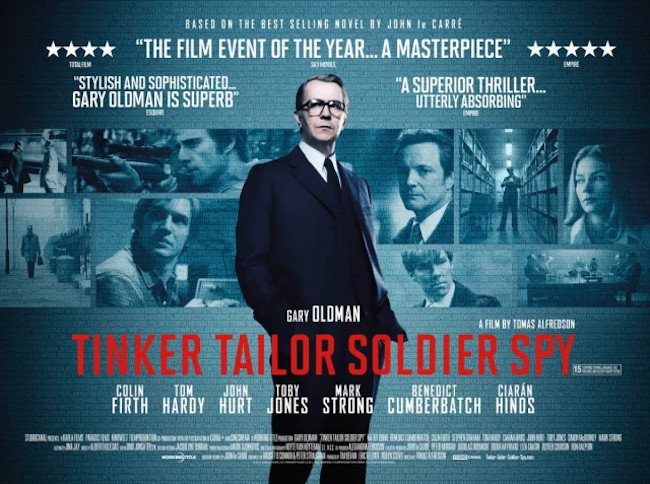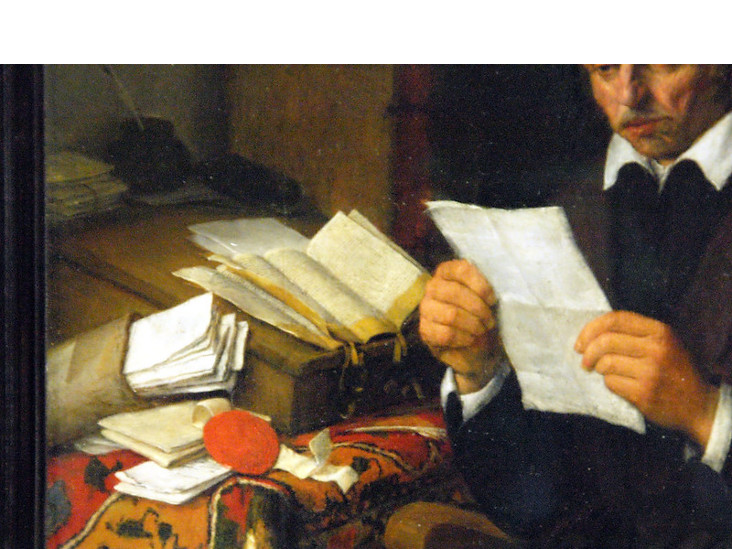A Spy Novelist’s Life Seen Through a Trove of Letters

A Private Spy: The Letters of John Le Carré
Edited by Tim Cornwell
Viking
752 pages
Years ago, too many to remember, a college friend and I rode the Canadian National Railway from Montreal to Kamloops, British Columbia. From there, we rather foolishly planned a bicycle expedition extending from B.C. to San Francisco, roughly 1,000 miles apart—a considerable distance under most circumstances, especially so when you’re pedaling your way across it.
The train ride west marked the first time I read John Le Carré’s Tinker Tailor Soldier Spy. The experience became one of those reading milestones (year after year, there’s reason to page through the novel yet again). For several days, when I could look away from the majestic Canadian Rockies, I became immersed in a Cold War story where a mundane act like lifting a file folder from an underground archive was far more suspenseful than James Bond eluding super-villains in his gadget-rich Aston Martin.
Tinker Tailor Soldier Spy revealed a world where the men and women of the “Circus” (MI6)—their wants, needs, and fears—weren’t really different from the rest of us. Genuine danger resided in tense closed-door meetings or a sheaf of incriminating documents. London was bleak and Berlin, the divided city, served up a viper’s nest of deception and betrayal. And there was George Smiley, a hero of extraordinary reticence and among the most memorable characters in 20th-century literature.
All this is a long-winded prologue to approaching A Private Spy, a bulky helping of the deceased author’s personal correspondence. What value might the master novelist’s letters have for lifelong devotees like me?

A Private Spy, impeccably edited by his late son, Tim Cornwell, includes all the background notes necessary for a clear understanding of Le Carré’s often tumultuous life and times. In letters to friends, lovers, his agent, the press, etc., a writer’s life unfolds for us over the years. For some, the love letters and domestic correspondence will hold less interest than those growing out of a never-ending campaign to go his own way as a novelist, spy or otherwise.
In 1970, while bidding farewell to a long-time publisher, he describes his dilemma:
“I am in an extremely equivocal position. A thriller-writer with pretensions? A novelist who hasn’t the guts to drop the thriller form? … I have in fact only one identity that will matter to either of us over the next few years: I write in my own way about my own things.”

Le Carré is often charming and endearing in these letters. For example, efforts to cajole the esteemed actor Alec Guinness into portraying Smiley on the BBC illustrate his powers of persuasion:
“Apart from plumpness, you have all the other physical qualities: a mildness of manner, stretched taut, when you wish it, by an unearthly stillness and an electrifying watchfulness. In the best sense, you are uncomfortable company, as I suspect Smiley is. An audience wishes—when you wish it—to take you into its protection.”
A Private Spy serves as a useful adjunct to his memoir, The Pigeon Tunnel, though it’s likely to be of most interest to those who already know his work. In the letters, he’s more personable, more humane, even as he grapples across the decades with burning matters of romance, literature, and left-wing politics.
Our bicycle journey from Canada down the West Coast ended in triumph (spoiler alert). Among lingering memories of Oregon’s sand dunes and the starry skies of Northern California, there’s always Tinker Tailor Soldier Spy, and then all of John Le Carré’s wonderful tales to come.

Author Bio:
Lee Polevoi is Highbrow Magazine’s chief book critic. His new novel, The Confessions of Gabriel Ash, will be published on May 23, 2023.
For Highbrow Magazine
Image Sources:
--Krimidoedel (Wikimedia, Creative Commons)
--Viking
--Takomabibelot (Flickr, Creative Commons)





























































































































































































































































































































